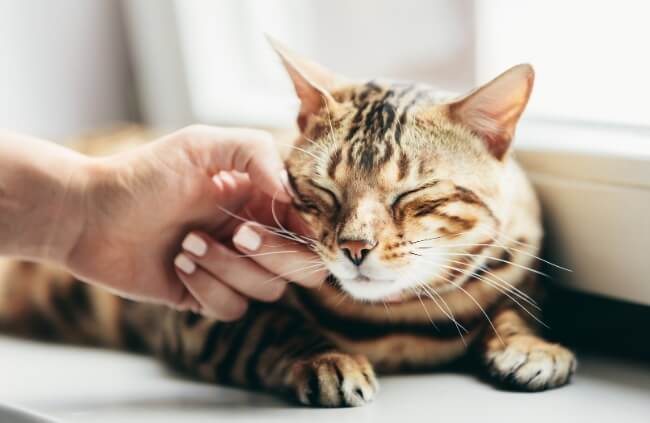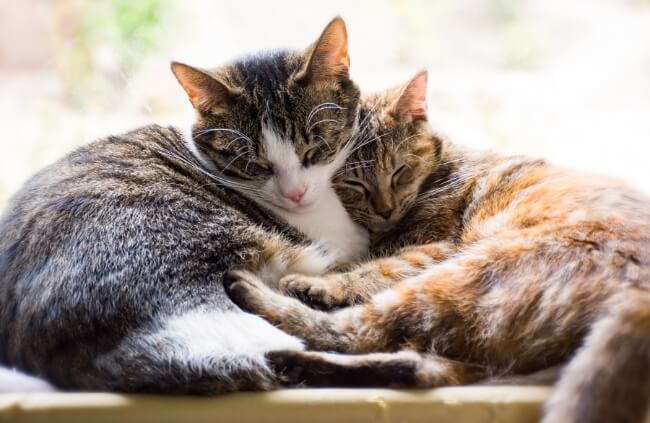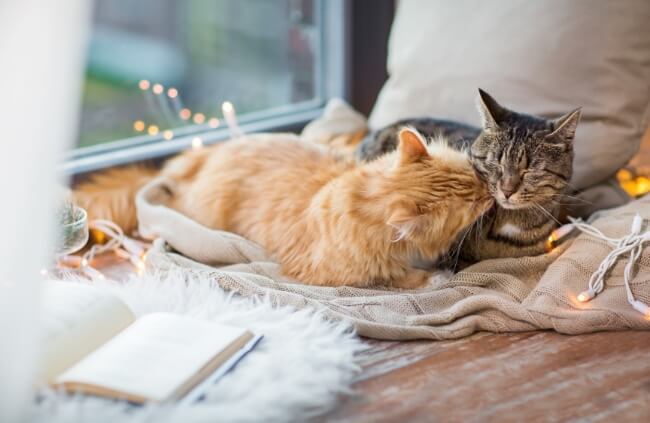There’s no doubt that losing a beloved pet is one of the hardest things we can go through as pet parents and if your companion happens to pass at home, it can be even more traumatic. If you have a sick or elderly cat, you may be wondering what to do when your cat dies at home.
It’s a valid question. Pet’s spend most of their time at home and cats in particular are quite aware when their time is drawing near, usually spending even more time in the comfort of their homes with their dear parents.
More...
Cats are extremely intelligent animals, usually exhibiting certain behaviours in their final days that would give you as a cat owner a clue as to their condition. Even still, I hear of many cat parents who find it particularly devastating when their cats pass at home.
In today’s guide, I will walk you through our step-by-step guide on what to do when your cat passes away at home in Australia, in the hopes I can give you some peace of mind that you are prepared for whatever may come.

What to Do When Your Cat Dies at Home: 8 Steps to Follow
1. Check Your Cat's Vitals
It may seem obvious, but it’s important to be 100% sure that your cat has passed away. Check their vital signs by looking for a heartbeat in the chest area or listening for any breathing sounds. This is the first big step of what to do when your cat passes away at home.
2. Call a Loved One for Support
Once you’re sure your cat has passed, it’s important to look after yourself and the loved ones who were attached to your cat as well. I know it’s hard either way, but contacting a loved one to talk to or who can even pop in to be there with you and your family during this difficult time will offer some needed emotional support.
3. Tuck the Legs and Wrap Up the Body
It’s a good idea to immediately place a towel or some padding under your cat as it's normal for them to release bodily fluids after passing. If needed, tuck your cat's legs towards the body, then gently wrap your cat in a blanket, towel, or anything you want to cover them in once they're appropriately positioned.
4. Keep Your Cats Body Cool
Unfortunately, the rate of decomposition of a cat's body is quite rapid, especially in Australian climates. Once your cat has passed, you only have about 24 hours to decide what you want to do with the remains to avoid any health risks.
Place your cat in the coldest possible environment you can, whether in an old fridge or freezer or on cold tiles in the garage.
5. Allow Your Other Pets to Say Their Goodbyes
If you have other pets, it’s also important to allow them to say their goodbyes so they can also start the grieving process. You can allow your pets to gently sniff your deceased cat, which will allow them to understand what has happened.

6. Call Your Vet for Arrangements
You should try to call your vet as soon as possible. Your vet should offer some sort of burial or cremation service, or be able to recommend a trusted pet cremation service in your area. They will be able to offer professional advice and support for the next steps.
7. Move Your Cat with Some Help if Necessary
Once you know where to take your cat, you will need to gently move and transport the remains to the relevant location. Feel free to ask a friend or family member for help with this as it can be a traumatic experience.
8. Plan Your Cats Memorial
You can now plan your cat’s special memorial service. Whether you choose to hire a pet memorial service or have an intimate memorial at home with your loved ones, a memorial service is an important stage of the grieving process, offering you the chance to honour and say your goodbyes uniquely and personally.
Check Your Local Laws
If you choose to perform a backyard burial for your cat, it may be a good idea to first check with your council about the local laws regarding burial on private property.
Some Australian laws may prevent this because pet burial can impact the soil or regional water table of a particular area. Your vet may also be able to shed some light on the matter.

Managing Insurance
Depending on what type of cat insurance coverage you have, you may have access to some financial assistance once your cat has passed. Australian municipal facilities and vets may accept deceased animals, but there are usually costs and strict regulations involved.
Pet cremation and memorial services will also have associated costs so we recommend calling your insurance agent for more specific information about your cover.
What to Do When Your Cat Dies at Home: Final Thoughts
There’s no doubt that cats are unique and highly intelligent animals, forming close bonds with their loved ones throughout their lives. I know that losing them can honestly feel like losing a family member.
If you’ve been wondering what to do when your cat dies at home, I hope this article has given you some peace of mind that you could deal with the situation properly and respectfully.
